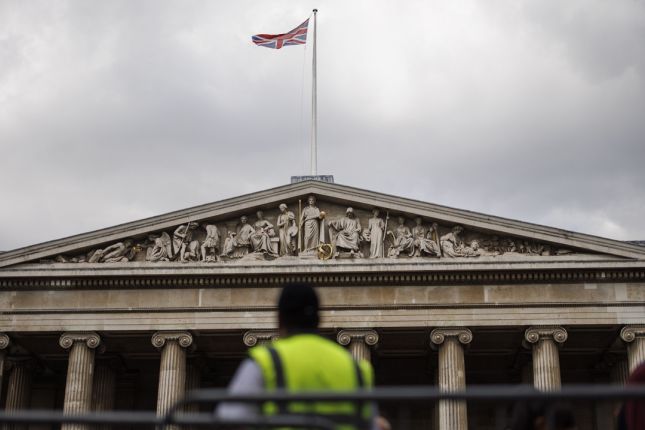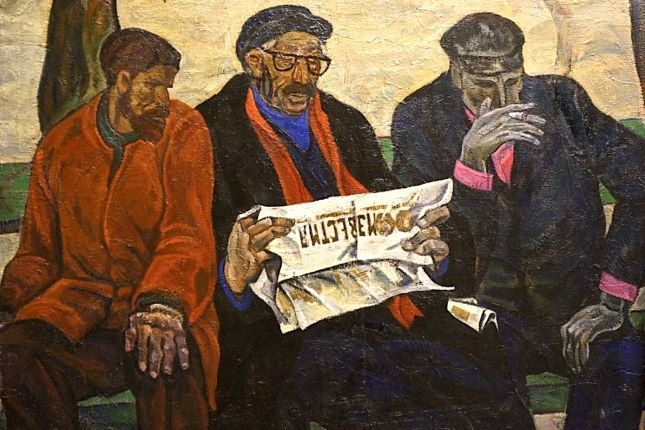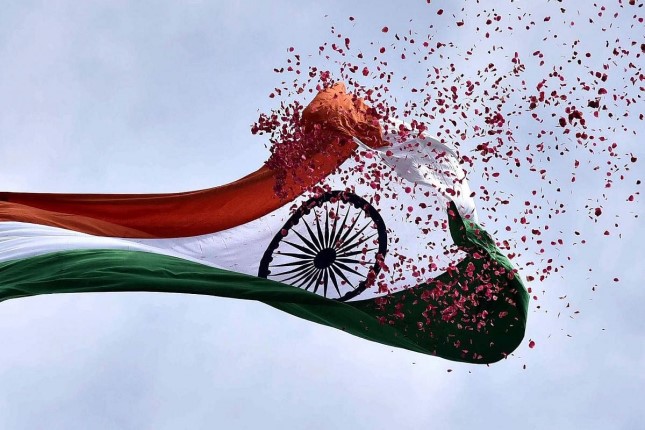As a Chinese media, we formally request the British Museum to return all Chinese cultural relics acquired through improper channels to China free of charge, and to refrain from adopting a resistant, protracted and perfunctory attitude. First of all, a public commitment should be made to the world for the return of the relics and this long overdue work should begin as soon as possible. We also support the claims for the restitution of cultural relics made by other countries that have been looted by Britain, such as India, Nigeria and South Africa. We urge the British government to cooperate in the legal and other procedures to facilitate the process, which will be a test and verification of Britain's sincerity in clearing the colonial stain and making amends for its historical sins.
The recent revelation that some 2,000 artifacts from the British Museum's collection inexplicably went missing has shocked not only the UK, but also all other countries that have collections in the British Museum. The huge number of missing artifacts, the long duration of the case, and the seriousness of the suspected internal thief have made it impossible to connect it with the British Museum, one of the largest museums in the world. People have questioned why the British police and the museum have delayed releasing photos and detailed descriptions of the stolen artifacts. The failure to release photos may indicate that the British Museum still has not been able to find out exactly how much of its vast collection has been lost, probably more than 2,000 pieces.
The vast majority of the British Museum's huge collection of up to 8 million items came from countries other than the UK, and a significant portion of it was acquired through improper channels, even dirty and sinful means. As a result, the British Museum has earned the name of the world's largest "receiver of stolen goods" which exhibits "stolen cultural property." In other words, what the British Museum fails to take good care of, and what it loses and breaks, is in fact mainly cultural property belonging to other countries, so how can this not be heartbreaking.
The huge loopholes in the management and security of cultural objects in the British Museum exposed by this scandal have led to the collapse of a long-standing and widely circulated claim that "foreign cultural objects are better protected in the British Museum." This statement has been accepted by some people in the victimized countries, indirectly weakening the motivation and determination to recover the artifacts from the British Museum. We doubt very much that it is an excuse of cultural colonization and brainwashing of developing countries.
In the British Museum, there are about 23,000 pieces of cultural relics from China. Among them, about 2,000 pieces are on display for a long term, including the Admonitions of the Instructress to the Court Ladies from the Tang Dynasty, Liao tri-colored luohan statues, ritual bronzes from the Shang and Zhou dynasties, stone buddhist sutra scrolls of the Wei and Jin dynasties, and other extremely valuable national treasures. It's difficult to trace how exactly China lost them to the British Museum, but most Chinese collections were certainly looted or stolen by Britain when it created and later took advantage of China's crisis, or even directly robbed China. As long as Britain cannot prove which collection was acquired legally and honestly, then the mother country of these collections has the right to seek their repatriation.
The UK, which has a bloody, ugly, and shameful colonial history, has always had a strong sense of moral superiority over others, often standing on the moral high ground to dictate to and even interfere in the internal affairs of other countries. We really do not know where their sense of moral superiority comes from. The United Kingdom, before pointing its finger at others, should first pay back its own historical debts and take the initiative to contact and discuss with the countries that have suffered from its colonial infringement on how to return the historical loot as soon as possible. It should not wait for others to come to its doorsteps, and then use all sorts of excuses, thus leaving the world with a very unflattering impression once again.
Over the years, the British Museum has refused to return the cultural relics mainly on the grounds and basis of the British Museum Act, which was amended by the British Parliament in 1963 and basically prohibits the museum from returning any of its collections. This is equivalent to the UK installing a threshold on its own door and then telling the owner of the relics that it cannot return the artifacts because it cannot get out of the door. It is obviously very hypocritical and ridiculous to use a law set by oneself as an excuse for refusing to obey international morality and fulfill international responsibility. The British Museum is a microcosm of the history of British colonial expansion. Even if the UK has wiped the fingerprints of the looters on these artifacts, it cannot erase the true ownership of these cultural properties.
Some say that the disappearance of 2,000 cultural relics from the British Museum could be the "largest" theft event to date. In our view, the questionable origins of the millions of artifacts in the British Museum raise further concerns about what constitutes the "largest" theft. Recently, Greece once again called for the return of sculptures taken from the Parthenon Temple by Britain in the past, only to be accused by British politicians of "blatant opportunism." This once again reveals the "traditions" of imperialism and colonialism. However, Britain's stubborn and evasive behavior comes at the expense of the image and reputation of the British Museum and even the entire country. Let us see how long Britain can hold out before facing this issue.
Photo: The British Museum.© IC
Source: Global Times.
































